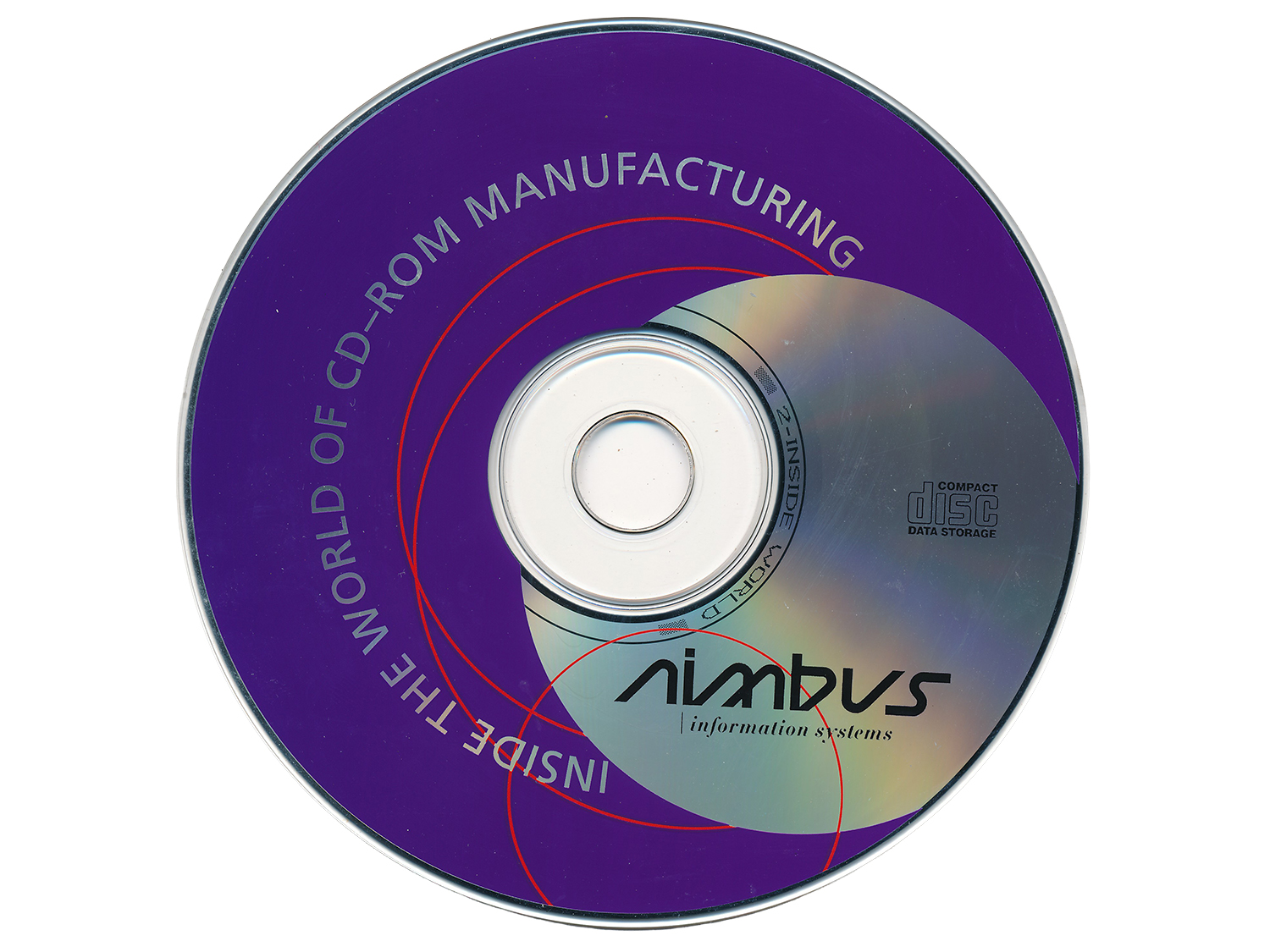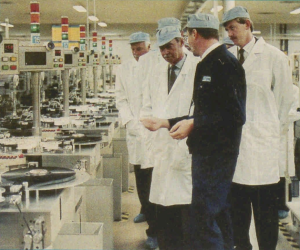When thinking about CD-ROM manufacturing in the 1990s and early 2000s, Luxembourg probably isn’t the first country that springs to mind. Yet for a brief but intense period, the Grand Duchy played a surprising and significant role — both in producing blank recording media and in pressing audio and interactive compact discs.
TDK’s arrival in Bascharage
In 1989, the Luxembourgish weekly magazine Revue ran the headlines «TDK Corporation» kommt nach Luxemburg and TDK-Kassetten «Made in Luxembourg». The newspaper d’Lëtzebuerger Land called the settlement of TDK in Luxembourg a “masterstroke” by the Luxembourgish Government. At the time, Japan’s TDK Corporation was one of the world’s leading manufacturers of audio and video cassettes, floppy disks and other electronic components. The new plant in Bascharage was to become TDK’s first fully integrated production facility for magnetic audio and video media outside Japan — meaning that both tapes and casings would come off the manufacturing lines.
By 1991, the newly established TDK Recording Europe had launched operations with 600 employees, mainly from Luxembourg and the Greater Region. Head positions were mainly held by Japanese expatriates, giving some local employees the opportunity to travel to TDK’s headquarter in Japan to attend training courses on production and management techniques. For Luxembourg, TDK represented not only a major economic boost — by 2000, the company employed 862 people, making it one of the country’s largest private employers — but also reinforced Luxembourg’s ambitions for economic diversification and its positioning as audiovisual hub. The plant’s arrival also symbolized a broader industrial transformation: large-scale steel production was gradually being complemented and, in part, gave way to the manufacturing of plastics and media. Initially focused on the production of audio and video cassettes, TDK expanded into digital recording media in 1997 with the introduction of CD-Rs, and in 1998 with Minidiscs. In 2004, the Bascharage site further diversified its product range to include DVDs.
Euronimbus joins the scene
Alongside TDK’s production of blank media, another player entered the Luxembourg scene in 1997–1998: Euronimbus. Founded by the Nimbus CD International group (70%) — one of the world’s largest independent CD producers, with operations in the United States and the United Kingdom — and the German Saarbrücker Zeitung Verlag (30%), Euronimbus specialized in pressing Compact Discs — the industrial process of mass-producing pre-recorded optical discs by stamping digital data from a glass master into the polycarbonate disc.

Source: Internet Archive (https://archive.org), uploaded by 0ldStaph2 on 26 October 2020.
At its festive opening in Foetz, Euronimbus unveiled four production lines for pressing audio CDs and CD-ROMs, announcing an annual capacity of over 20 million data carriers — with plans to expand into DVDs and DVD-ROMs. Engaged in content recording, Euronimbus collaborated mainly with creative agencies, political and cultural institutions. Its client list included the Publications Office of the European Union – which was already a client of the Welsh plant owned by the Nimbus group – and relied from that moment on the new plant for mastering, pressing, and packaging. At its peak in 2001, Euronimbus employed 313 people.
End of the line
However, the initial excitement of both the authorities and the business sector soon turned into deep disappointment — especially for the workforce — when both companies announced they were shutting down operations. The news prompted action from the syndicates OGBL and LCGB, but their efforts could not prevent the closures.
At TDK Recording Europe, audio cassette production ended in 2003, followed by video cassettes in 2005. That same year, a first social plan was introduced, with a second following in 2006. Shortly afterward, the plant closed for good. Journalist Véronique Poujol in her article Méga-plantage described TDK’s downfall as the inevitable result of late technological shifts and high production costs compared to other plants located in India and China.
Euronimbus, later renamed Technicolor, faced a similar fate. In 2005, it introduced its own social plan, and by 2007, it announced the relocation of production to Poland—marking the definitive closure of its Luxembourg plant.
A short but striking legacy
When you think of CD-ROM manufacturing, Luxembourg still might not be the first place that comes to mind — yet for a few years, it was home to a thriving industry. In Bascharage and Foetz, machines ran day and night, turning out millions of discs — some blank, others filled with music, films, software, and data. Then, almost as quickly as it began, the boom ended: the cycle of media obsolescence took its course, the market shifted, demand dropped, competition intensified, and Luxembourg’s brief role in the CD-ROM story slipped into history.
